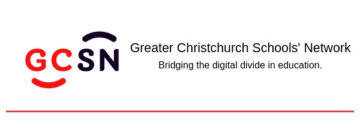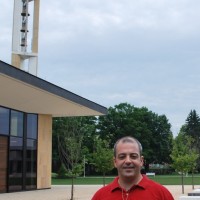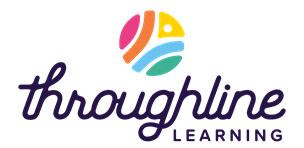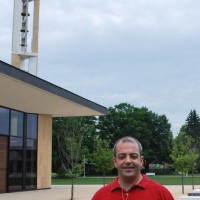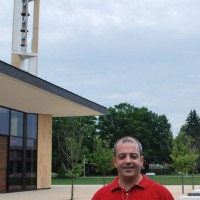
April 1, 2024
Article Notice – Exploring secondary students’ emergency remote teaching and learning experience in science curriculum during the COVID-19 pandemic
The second of four articles that scrolled across my electronic desk over the past few days.
- Emily Hope Morrison
- Dimitrios Vlachopoulos
Abstract – Globally, schools were faced with mandatory shutdowns in the wake of the recent COVID-19 outbreak. To avoid disruption in the education process, teachers and students used alternative education strategies and solutions, switching to emergency remote teaching and learning (ERTL). This change was completely unanticipated, and thus can only be perceived as a reactionary measure. The purpose of this basic qualitative study is to explore the experience of secondary students regarding ERTL, as well as their satisfaction with the tools used in the science curriculum. Challenging the assumption that the learning experience during ERTL would be similar in most subject areas, this qualitative study focuses on the aspects of the science curriculum that were complex to offer in an online setting, including experimentation and modelling of phenomena. To achieve this purpose, three focus groups with grade 8 students from an international school were conducted. Most of the participants described ERTL experience as having a predominantly negative affect on their engagement and academic performance, mainly because of their poor home learning environments, the duration of remote teaching, and the distractions that derive from the ongoing use of the Internet. At the same time, the findings revealed that, beyond the accessibility and interactivity appropriate technologies can offer, the use of tools like gamified pop-quizzes, video applications and interactive simulations can enhance the learning experience. The procedure followed for this research is easy to replicate at different contexts and, thus, generate enough data to reimagine science education from the lessons learned during ERTL.
No comments yet.
RSS feed for comments on this post. TrackBack URI
- SEO Powered Content & PR Distribution. Get Amplified Today.
- PlatoData.Network Vertical Generative Ai. Empower Yourself. Access Here.
- PlatoAiStream. Web3 Intelligence. Knowledge Amplified. Access Here.
- PlatoESG. Carbon, CleanTech, Energy, Environment, Solar, Waste Management. Access Here.
- PlatoHealth. Biotech and Clinical Trials Intelligence. Access Here.
- Source: https://virtualschooling.wordpress.com/2024/04/01/article-notice-exploring-secondary-students-emergency-remote-teaching-and-learning-experience-in-science-curriculum-during-the-covid-19-pandemic/
- :is
- 1
- 10
- 39
- 4
- 8
- a
- academic
- accessibility
- Achieve
- across
- affect
- alternative
- an
- and
- applications
- appropriate
- areas
- article
- articles
- AS
- aspects
- assumption
- At
- avoid
- basic
- BE
- because
- begin
- Beyond
- CAN
- Category
- challenging
- change
- comment
- comments
- completely
- complex
- conducted
- contexts
- COVID-19
- COVID-19 pandemic
- Curriculum
- data
- Days
- derive
- described
- desk
- different
- Disruption
- duration
- during
- easy
- Education
- educational
- Electronic
- emergency
- end
- engagement
- enhance
- enough
- environments
- experience
- explore
- Exploring
- faced
- feedback
- few
- findings
- Focus
- focuses
- followed
- For
- four
- from
- gamified
- generate
- Globally
- grade
- Group’s
- having
- Home
- hope
- How
- HTTPS
- identifier
- in
- Including
- interactive
- interactivity
- International
- Internet
- learned
- learning
- Lessons
- Lessons Learned
- like
- mainly
- mandatory
- measure
- Meta
- Michael
- modelling
- most
- my
- negative
- Notice..
- of
- offer
- on
- ongoing
- online
- only
- outbreak
- over
- pandemic
- participants
- past
- perceived
- performance
- plato
- Plato Data Intelligence
- PlatoData
- pm
- poor
- Post
- predominantly
- procedure
- process
- purpose
- qualitative
- really
- recent
- reduce
- regarding
- remote
- research
- resource
- Revealed
- same
- satisfaction
- School
- Schools
- Science
- Second
- secondary
- setting
- shutdowns
- similar
- Simple
- simulations
- site
- Solutions
- spam
- Status
- strategies
- Students
- Study
- subject
- syndication
- TAG
- teachers
- Teaching
- Technologies
- that
- The
- their
- this
- three
- Thus
- time
- to
- tools
- unanticipated
- under
- use
- used
- uses
- Video
- Wake
- was
- WELL
- were
- with
- WordPress
- would
- yet
- Your
- zephyrnet



